- Учителю
- Многое случается в нашей жизни.
Многое случается в нашей жизни.
Аннотация
Данный урок является одним из звеньев блока уроков, направленных на осознанное восприятие функциональных особенностей различных времен английского языка.
Цели урока предусматривают создание комфортных условий для развития интеллектуальных и личностных способностей каждого обучающегося и осуществляются на коммуникативной основе с использованием технологий деятельностного подхода.
Целью заданий всех этапов урока является создание ситуаций успеха для развития коммуникативных, учебно-познавательных, языковых и компенсаторных компетенций обучающихся. На уроке создаются условия, при которых учебный материал включается в мотивационную сферу обучающихся, дети развивают свою фантазию, абстрактное мышление, активно взаимодействуют между собой. Урок становится более насыщенным и интересным, что позволяет добиваться хороших личностных, предметных и метапредметных результатов.
Урок для 8-х классов
Тема: Многое случается в нашей жизни.
Things Happen in Our Life.
Цели:
I. Практические
-
Обучающиеся повторят три формы неправильных глаголов.
-
Поймут функцию сказуемого в прошедшем перфектном времени.
-
Осознают различия между прошедшим простым и прошедшим
перфектным временем.
II. Образовательная
Обучающиеся узнают новые факты об одной из величайших
трагедий мира.
III. Воспитательная.
Обучающиеся осознают значение чувства ответственности в
развитии личности человека.
IV. Развивающая.
Обучающееся разовьют способность абстрактного мышления.
Ход урока
-
Организационный этап
Greetings and attendance check.
-
Мотивационный этап
Цель этапа: включить обучающихся в учебную деятельность по изучению нового материала на личносто-значимом уровне.
Учитель демонстрирует две картинки с предложениями, сопровождающими сюжет картинок.
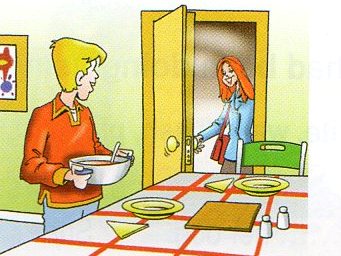
When she…(come) home they…(have) dinner together.
Учитель задает вопрос к первой картинке:
Did he have dinner without her?
Предполагаемый ответ обучающихся : No, he didn't. She came and they had it together.
Учитель спрашивает: Was there a break in time between the actions?
Предполагаемый ответ: No, there wasn't. One action happened after another one.
Обучающиеся смотрят на вторую картинку и читают предложение к этой картинке.
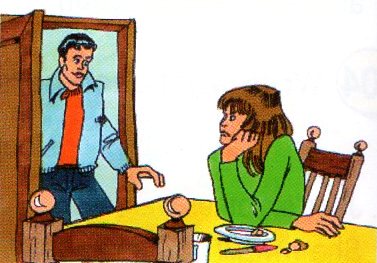
When he…(come) home she …(have) already… dinner.
III. Актуализация знаний и выявление проблемы.
Цель этапа: подвести обучающихся к пониманию необходимости построения нового способа действия, указывающего на предшествование.
Учитель задает вопрос: Was there a break in time between her dinner and his coming back home?
Предполагаемый ответ: Yes, there was. She has already had dinner.
Учитель спрашивает: Can we use the verb "has" after the verb "came" in the past?
Предполагаемый ответ: No, we can't. We should use "had".
Учитель спрашивает: Who can read the second sentence?
Предполагаемый ответ: When he came home she had already had dinner.
Учитель спрашивает: What is unusual in this sentence?
Предполагаемый ответ: There are two verbs "had" in it.
Вопрос учителя: Who can explain it?
Предполагаемый ответ: The first "had" shows Perfect Aspect, the second "had dinner" shows real action.
Вопрос учителя: Who can guess the name of this tense?
Предполагаемый ответ: Is it called "Past Perfect"?
Учитель: That's right. So what are we going to practice and compare today?
Предполагаемый ответ: We are going to practice Past Perfect and compare it with Past Simple.
Учитель записывает тему на доске.
IV. Проект выхода и реализация проблемы.
Цель этапа: постановка цели учебной деятельности, выбор способа и средств.
Учитель предлагает обучающимся прочитать два предложения и заполнить пропуски глаголами в правильной форме.
James Bond… (enter) the room, … (come) up to the window, … (open) it and… (look) out.
Учитель спрашивает: Why did you use only Past Simple?
Предполагаемый ответ: Actions happened one after another. No break in time.
In the bus he suddenly… (remember) that he… (forget) the key at home.
Учитель спрашивает: Which action happened first?
Предполагаемый ответ: First he had forgotten the key at home and later in the bus he remembered it.
Затем учитель предлагает обучающимся прочитать мини-текст и отметить действия в Past Perfect и Past Simple на временной линии. На доске записан пример и дана временная линия.
Before the Titanic…(strike) the iceberg the ship… (receive) six ice-warnings.
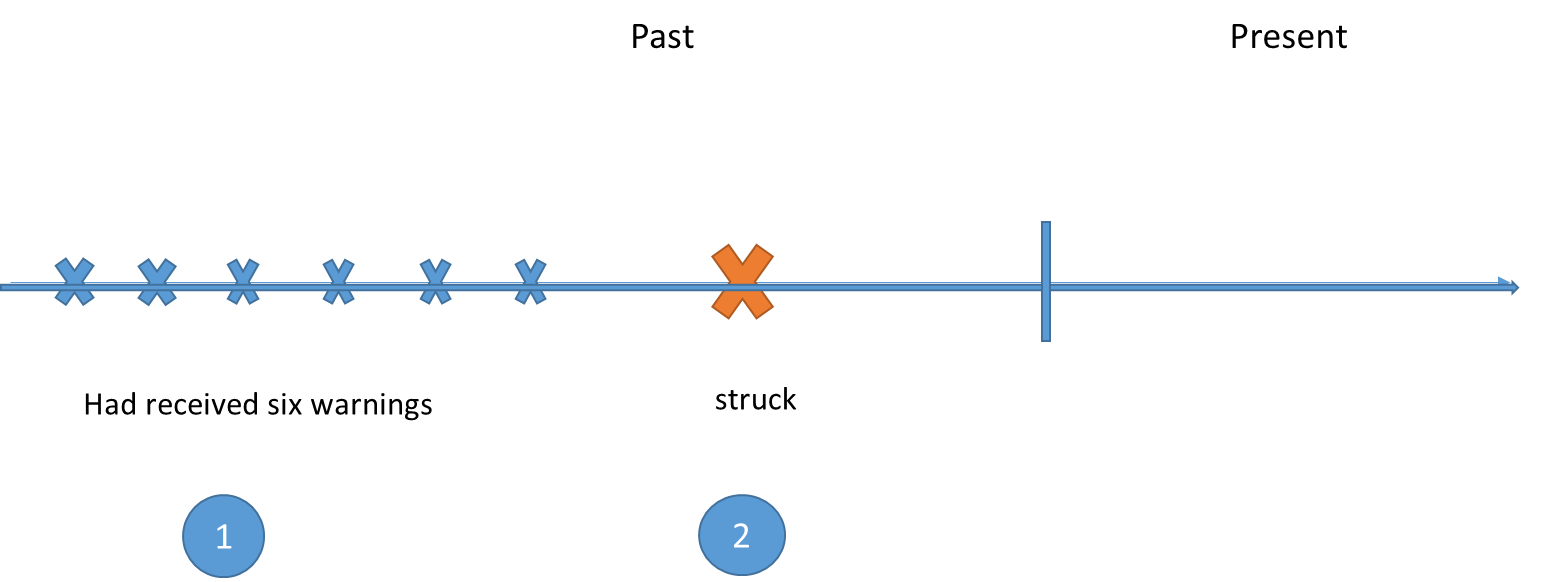
Variant №1
First of all nobody believed that the Titanic could sink, though it carried 2207 passengers, nobody expected such a tragedy to happen.
The steamship company had followed an old rule for the number of lifeboats, so they had supplied lifeboats for only 1178 people when they started the journey. Passengers hadn't received their lifeboats numbers before the ship left the port. They hadn't even practiced lifeboat drill before they set out. Many of them hadn't even dressed warmly, because they didn't believe they were in danger.





Variant №2
At the moment of the tragedy there were two other ships in the area.
The California was only ten miles away from the Titanic. Its officers were close enough to see the Titanic but they didn't understand the situation. They never received the Titanic's call for help because their radio officer had just gone to bed when the accident happened.
One more ship the Carpathia was 58 miles away. It received the radio call for help but it arrived two hours after the Titanic had gone down. It saved only 705 people. Some passengers had been in the icy water for hours before they were saved. When the Carpathia arrived, about 1500 people had already lost their lives.




После этого обучающиеся меняются текстами и проверяют результаты друг друга, дают оценку работе.
V. Релаксация
A Chant
"A Bad Day"
I missed my train,
because I'd slipped
in the pouring rain,
had sprained my ankle
and skinned my knees,
had broken my glasses
and lost my keys.
I went home angry
locked the door
crawled into bed,
couldn't take any more.
VI . Первичное закрепление
Цель этапа: применить новое знание в типовых заданиях
Задание: Посмотрите на картинку и поставьте глагол в правильное время.
Список неправильных глаголов:
Lose-lost-lost
Buy-bought-bought
Write-wrote-written
Eat-ate-eaten
-
He couldn't pay the bill because he… (lose) his wallet.
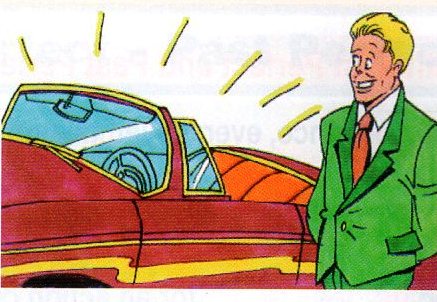
He bought a car after he…(save) enough money.

She signed the letter after she …(write) it.

Her hear was wet because she… (wash) it.
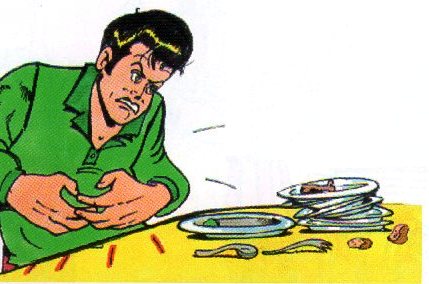
He felt sick because he … (eat) too much.
VII. Самостоятельная работа
Цель этапа: самопроверка умения находить причинно - следственную связь по эталону.
Учитель предлагает обучающимся прочитать примеры и составить собственные предложения используя Past Perfect.
Read examples, make believe it happened to you. Express your own
experience.
Variant I
Example: When she came downstairs into the kitchen she saw coffee which
her husband had made for her.
(you - breakfast - your granny - cook)
When I came into the kitchen I saw breakfast which my granny had cooked
for me.
-
All the students had finished most of the work by the time the bell
rang. (your classmates - write the test)
-
Our mum had cooked a delicious cake for us and we all enjoyed eating
it.
(your aunt - bake - delicious pies)
-
She was hungry because she hadn't eaten any breakfast in the
morning. (your brother - have dinner - after work)
-
When I arrived to the office, the boss had already gone out.
(your friend - to the station - the train leave)
-
The parrot died because he had forgotten to feed it.
(the flowers - you - not water (verb))
Variant II
Example:
She looked at the pencil and saw that her brother had broken it in two.
(He - at his fishing line - snap)
He looked at his fishing line and saw that it had snapped.
-
His leg hurt because he had fallen over playing football.
(your back - you - dig the whole garden)
-
When we came to the bus stop the people told us that the bus had
already left.
(you - tram stop - just go away)
-
We continued our journey after the police had checked our documents.
(you - look through - your passport)
-
Her headache disappeared after she had drunk some medicine.
(your toothache - take - some pills)
-
They had promised to do the job in an hour, but they still didn't finish
it.
(you - agree to do the job - not manage)
VIII. Включение в систему знаний и повторение.
Цель этапа: включить конструкцию "had done" в систему знаний.
Работа в группах.
Учитель раздает группам вопросы и листочки, в которых они должны написать имена своих партнеров по команде. Обучающиеся задают друг другу вопросы по очереди и записывают причину действия используя Past Perfect.
-
Why did you enjoy dinner last Sunday?
-
Why were you late for school last week?
-
Why were you the last one doing your test in maths a week ago?
-
Why were you the first doing your test in English yesterday?
-
Why were you hungry last Wednesday?
-
Why did your leg hurt last Thursday?
-
Why did you have a toothache after your birthday?
-
Why did your toothache disappear?
St.2 (name)
St.3 (name)
St.4 (name)
1
2
3
4
1
2
3
4
1
2
3
4
1
2
3
4
-
Домашнее задание
-
Подготовить репортаж о партнерах по группе, используя информацию на своих листочках.
-
Поставить глаголы в скобках в правильное время
-
When we … (come) to the bus stop the bus … (already leave).
-
He … (eat) so much that his trousers … (not fit) him any more.
-
After I … (get) a bath, I … (go) to bed.
-
Her parents … (arrive) home before she … (manage) to clear up the
mess in her room.
-
The flowers … (die) because we … (forget) to water them.
-
My neighbour … (give) me a lift because I … (miss) my bus.
-
They … (can) not answer the questions because they … (not revise)
the material for the exam.
-
She … (bake) a delicious cake and we all … (enjoy) eating it.
-
School teachers … (be) happy because students … (pass) all exams.
-
Рефлексия
- What was the problem?
- How to show that one action in a sentence was some time before another
past action.
- What was the aim?
- To find sentences in Past Perfect, mark them on the time-line and use in our own
examples.
- What verbs were in Past Perfect and why?